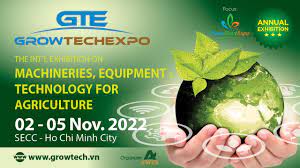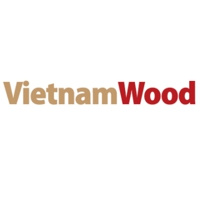- Read all
- Rice
- Fisheries
- Cassava
- Fertilizer & Pesticide
- Coffee
- Animal Feed
- Cocoa
- Seed
- Tea
- Wood
- Pepper
- Agricultural Cooperations
- Cashew
- Agricultural Investments
- Rubber
- Governmental Policies
- Sugarcane
- Agricultural Startup Ecosystem
- Corn
- Technological Innovations
- Spices
- Organic Agriculture
- Bean
- Food Manufacturing
- Fruit & Vegetable
- Agricultural Value Chain
- Flower
- Water & Waste Management
- Meat
- Processed Food
- Dairy
- Plant Originated Products
- General Agro Commodities
- Animal Originated Products
Slow Growth Needs A New Model For Vietnam’s Agriculture
February 24, 2016
"The growth in production value of the agriculture, forestry and fishery sector (in recent months) has been slowed down due to various reasons, including decreased purchasing power caused by economic difficulties," Deputy PM Nguyen Thien Nhan stated.

Authorities of the Central Highlands Province of Lam Dong inspect the quality of potatoes in the Da Lat agriculture market. The country has recently called for tightened management on the imported agricultural products, and a review of the products Viet Nam can produce. — VNA/VNS Photo Nguyen Dung
Achievements and challenges of Vietnam’s agriculture
Vietnam is now one of top world exporters in rice, rubber, coffee, pepper, cashew nuts, wood products and fisheries with continuously increasing agricultural exports. Vietnam is currently the second biggest rice exporters in the world after Thailand, and also the second largest coffee exporter following Brazil. This reflects Vietnam’s global agricultural potential and has constituted important foundation for social stability, political security, as well as for environmental protection. Although Vietnam has great natural advantages, its agricultural products are often eyed as being low-quality in comparison with other countries like Thailand.
Against the background of deeper integration into the world economy, Vietnam’s agriculture faces a number of challenges from inside and outside perspective. Agricultural development is fundamentally based on exploiting the natural resources (growing cultivating land surface etc) and consuming high quantities of input materials but low technology. The low development quality is exposed by the high loss level after harvest, uneven quality of products, unsafe food sanitation and low capability in creating new added values.
Secondly, the shift in agricultural products structure has been slow, which does not reflect the competitive advantages, nor meet the future prospect of demand. Cropping still occupies more than 50% of the agricultural sector and rice is the most important major crop. There have been more serious difficulties for Vietnam's agricultural production due to emerging factors such as (i) degrading farmers' ability to expand production; (ii) increasing risks in agricultural production; (iii) risks in market price volatility; (iv) pollution and risks of environmental degradation; (v) more pressing competition by regional investments in agriculture; (vi) the world economic recession, decreasing market demand resulting in entrepreneurs' difficulties. Due to the slow economic growth rate, as well as lower demand on the world market, prices of Vietnam's agricultural products have declined.
New agricultural model
A new growth model for agriculture development was introduced as Government officials and local authorities gathered for the monthly cabinet meeting in Ha Noi on Thursday.
A report from the Ministry of Planning and Investment showed that in the first six months of the year, total production of the agriculture, forestry and fishery sectors witnessed an estimated growth of only 2.4 per cent, the lowest rise in the 10 years.
Deputy PM Nguyen Thien Nhan said it was time for the sector to improve the quality of products by following market demand while applying science and technology, marketing, and trademark building to boost efficiency. Nhan urged the struggling sectors to shift to the proposed growth model instead of simply improving productivity and capital flows as before.
"The growth in production value of the agriculture, forestry and fishery sector (in recent months) has been slowed down due to various reasons, including decreased purchasing power caused by economic difficulties," he said.
Explaining the reasons for their difficulties, local representatives blamed price fluctuations and low quality agricultural products being illegally smuggled into the country that were causing negative effects on agricultural production.
They called for tightened management on the imported agricultural products and a review of the products Viet Nam can produce. They suggested that products, especially those from husbandry, needed to be limited due to technical barriers.
"It's necessary to halt products with unknown origins and imported agricultural products that can also be produced domestically," said Secretary of the Party Committee of central Thanh Hoa Province Mai Van Ninh.
Minister of Agriculture and Rural Development Cao Duc Phat said the sector should pay more attention to the market, especially for exports, "Most of the products can only maintain their prices or gain high growth rates through exports."
The sector head said the Government had urged ministries and sectors to support enterprises in solving barriers to export markets, also to co-ordinate with localities in controlling imports and fighting smuggling.
Sharing his opinion on issues facing the agriculture sector, Deputy PM Vu Van Ninh asked for re-structuring, research on demand and supply, as well as the building of inter-regional co-operation for development. "Rice producers must aim to ensure national food security first," he said. "If it is productive then we can export, but if it is not, we need to quickly shift to other plants and animals," he stressed.
Thuy Huynh
Source: Vietnam News (VNN) and Vietnam Trade Promotion Agency (VIETRADE)
Related news
-
Opportunities for Long An agricultural products to enter the Korean market
Long An province invites Korean businesses to continue investing in the agricultural product processing industry, logistics, health, beauty and importing dragon fruit products, lemons, bananas, rice...August 30, 2022 -
UKVFTA Agreement opens up opportunities for Vietnam's coffee industry
British consumers traditionally drink more instant coffee than European countries. The UKVFTA agreement is opening up opportunities for Vietnam's coffee industry to enter more smoothly than the UK market.August 23, 2022 -
Vietnam and Denmark cooperate towards sustainable agriculture
In the days from August 16 to 19, 2022, the Danish business delegation in the field of Agriculture - Food will have working sessions in Hanoi and Ho Chi Minh City to exchange business and cooperation opportunities with the potential partners in Vietnam…August 18, 2022 -
Issuing 'identity cards' for shrimp seed
'One breed, two lips, three baits, four skills', is an experience passed on to each other to affirm the importance of seed in aquaculture.August 18, 2022 -
New prospects for durian: investing in technologies to boost the value
To increase the value of the commodity chain, Dong Nai province is developing regions specializing in durian cultivation and encouraging investments in durian freezing facilities.August 17, 2022
Events See more

Vietnamplas 2022 - Vietnam International Plastic and Rubber Industry Exhibition
23-03-2023 - 26-11-2022 09:00 - 17:00
Saigon Exhibition and Convention Center (SECC) – 799 Nguyen Van Linh Boulevard, District 7, City. Ho Chi Minh.

GROWTECH EXPO - FLORAPLANTEXPO 2021
02 - 05-11-2022 09:00 - 17:00
Saigon Exhibition and Convention Center (SECC) – 799 Nguyen Van Linh Boulevard, District 7, City. Ho Chi Minh.

VTG 2022
18 - 25-10-2022 09:00 - 17:00
Saigon Exhibition and Convention Center (SECC) – 799 Nguyen Van Linh Boulevard, District 7, City. Ho Chi Minh.

VIETSTOCK 2022 - SPECIALISED EXHIBITION OF LIVESTOCK, FEED AND MEAT PROCESSING IN VIETNAM
12 - 14-10-2022 08:00 - 17:00
799 Nguyen Van Linh, Tan Phu Ward, Dist. 7, Hochiminh City, Vietnam

VTG 2022
21 - 27-09-2022 09:00 - 17:00
Saigon Exhibition and Convention Center (SECC) – 799 Nguyen Van Linh Boulevard, District 7, City. Ho Chi Minh.
.png)
VIETFISH 2022
22 - 26-08-2022 09:00 - 17:00
Saigon Exhibition and Convention Center (SECC) – 799 Nguyen Van Linh Boulevard, District 7, City. Ho Chi Minh.
Business Opportunities See more
-
BURANI INTERFOOD is looking for Buyers in Vietnam
Type:
November 22, 2021
-
BURANI INTERFOOD is looking for Buyers in Vietnam
Type: Wholesaling Meat
November 22, 2021
-
BURANI INTERFOOD is looking for Buyers in Vietnam
Type: Wholesaling Meat
November 22, 2021
-
BURANI INTERFOOD is looking for Buyers in Vietnam
Type: Wholesaling Meat
November 19, 2021
-
BURANI INTERFOOD is looking for Buyers in Vietnam
Type:
November 19, 2021
-
Indian purchaser looking for high quality cashew nut kernel from Vietnam
Type: Exporting Cashew
Mar 14, 2016
534
Limitless database of qualified and verified agricultural partners
124
Exclusive buy & sell leads on specific agricultural commodities
24
Agricultural events in Vietnam and Asia Pacific region
Stay informed!
Enter your email address below to receive updates each time we publishes new content
